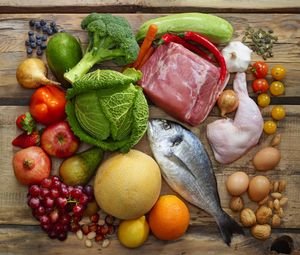An Introduction to Dieting for Rheumatoid Arthritis

With rheumatoid arthritis, it can feel like a constant battle managing your symptoms. While medication and ongoing treatment with a rheumatologist are imperative to successfully controlling this chronic illness, diet is a particularly essential component. Here’s how what you eat can affect how you feel with RA.
Foods to Incorporate Into an RA Diet
Fatty Fish
 Omega-3 fatty acids are a staple of the diet of someone with RA because they are believed to relieve inflammation. This beneficial property requires a healthy balance of omega-3 to omega-6 fatty acids. The greater the ratio between the two, the higher the risk for chronic diseases like rheumatoid arthritis. When you stock your diet with fatty fish like salmon, tuna, sardines, and herring, you will find an improvement in your symptoms.
Omega-3 fatty acids are a staple of the diet of someone with RA because they are believed to relieve inflammation. This beneficial property requires a healthy balance of omega-3 to omega-6 fatty acids. The greater the ratio between the two, the higher the risk for chronic diseases like rheumatoid arthritis. When you stock your diet with fatty fish like salmon, tuna, sardines, and herring, you will find an improvement in your symptoms.
Fruits & Veggies
These pillars of the food pyramid control RA symptoms through their antioxidant-rich composition. This compound helps to stabilize molecules called free radicals, which are a culprit for inflammation and damaged cells. To reap the most benefits, you should eat a colorful variety of vegetables as well as monitor the sugar content of the fruits you consume. On average, you should aim for two cups of fruits and around three cups of vegetables, which can fluctuate based on how much exercise you get per day.
Whole Grains
The likes of oats, whole wheat, brown rice, and quinoa are diet essentials because they alleviate both direct and auxiliary issues for those with rheumatoid arthritis. They lower the levels of c-reactive protein (CRP), a protein that causes inflammation, and reduce the risk of heart disease, which is contributed to the higher nutrient and fiber content than refined grains. Prioritize whole grains as a primary ingredient in bread, cereals, and similar products to receive the most benefits, and cut added sugar and saturated fats that refined grains contain.
Nuts
Nuts have a variety of healthful properties that help bolster your system from additional RA issues. Overall, they have heart-protective properties and essential nutrients to nourish the body. Walnuts, in particular, also have high omega-3 content (as do the categorically adjacent flaxseeds), and pine nuts, pistachios, hazelnuts, and almonds are also beneficial. Since nuts contain healthy fats, though, they also have a high caloric count, so keep your daily intake to a modest level.
Diet Choices That Can Elevate RA Symptoms
Fried Foods
Meats, in general, contain advanced glycation end products (AGEs), which generate inflammatory reactions and lead to tissue damage. The higher the heat to cook meat, the more AGEs form, which can irritate RA symptoms. Doctors will suggest that you limit the amount of red meat in your diet, and instead, steam, simmer, or braise lean proteins.
Trans Fat
The infamous culprits of a poor diet are trans-unsaturated fatty acids, which are found in packaged or processed foods to increase shelf life. They can raise bad cholesterol, which increases your risk of heart disease, and increased consumption can cause inflammation due to high CRP levels. Vegetable oil is the item to mainly watch in your diet, as it contains those pesky omega-6 fatty acids that are necessary for energy but in moderation. Replace it with olive oil instead for all your cooking needs.
Sugars & Refined Carbohydrates
It’s no secret that a sugar-heavy diet is detrimental for your health, but with rheumatoid arthritis, excess amounts can trigger your symptoms. Upon digesting sugars and refined carbs found in sodas, juices, and pastries, your body releases inflammatory messengers, otherwise known as cytokines. Sugar substitutes and the likes of fructose, sucrose, and glucose are equally as damaging. While it isn’t realistic to rid of sugar entirely in your diet, practicing moderation can go a long way for those with RA.
Alcohol
Like with any indulgence in your diet, the key is moderation. With alcohol, red wine is even known to have anti-inflammatory results, but too much alcohol will cause liver damage, which can result in inflammation. If you have RA, it’s also essential to consider how it interacts with your medication. Non-steroidal anti-inflammatory drugs or acetaminophen mixed with alcohol can increase your risk of stomach bleeding or liver problems. To limit any adverse effects, women should keep intake at one glass a day and men no more than two.
Diet can make a significant difference in chronic illnesses like rheumatoid arthritis, and you can make the most of this benefit with guidance from a trusted rheumatologist. In Albany, NY, RA patients rely on the team of doctors at Urgent & Primary Care to lead healthier lives. The father-daughter duo and their staff offer compassionate, knowledgeable care for all your primary care and rheumatology needs. For more information about their full range of medical services, give them a call today at (518) 470-3458 or visit their website.
About the Business
Have a question? Ask the experts!
Send your question

